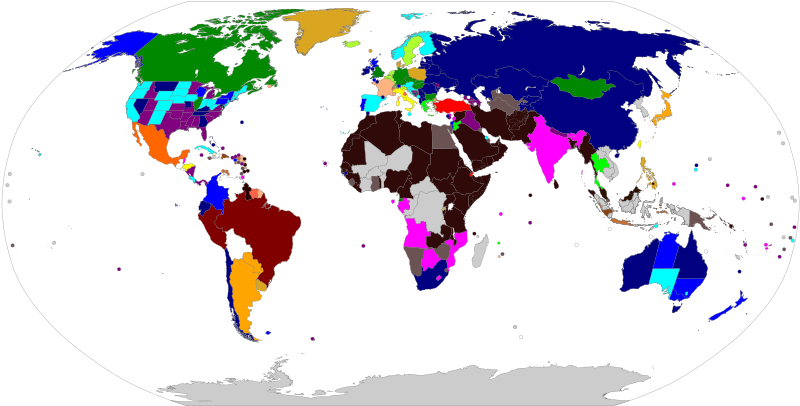|
تضامنًا مع حق الشعب الفلسطيني |
ملف:Decriminalization of Homosexuality by country or territory.svg
اذهب إلى التنقل
اذهب إلى البحث

حجم معاينة PNG لذلك الملف ذي الامتداد SVG: 800 × 406 بكسل. الأبعاد الأخرى: 320 × 162 بكسل | 640 × 324 بكسل | 1٬024 × 519 بكسل | 1٬280 × 649 بكسل | 2٬560 × 1٬298 بكسل | 856 × 434 بكسل.
الملف الأصلي (ملف SVG، أبعاده 856 × 434 بكسل، حجم الملف: 2٫35 ميجابايت)
تاريخ الملف
اضغط على زمن/تاريخ لرؤية الملف كما بدا في هذا الزمن.
| زمن/تاريخ | صورة مصغرة | الأبعاد | مستخدم | تعليق | |
|---|---|---|---|---|---|
| حالي | 07:33، 11 ديسمبر 2021 |  | 856 × 434 (2٫35 ميجابايت) | commonswiki>Bayu Fuller | Correct Malaysia , In Malaysia both Male and Female homosexuality Is Illegal , punishable by Fines , Caning Or Prison .https://www.thejakartapost.com/news/2018/09/03/two-malaysian-women-caned-under-islamic-law-for-lesbian-sex.html |
استخدام الملف
ال1 ملف التالي مكررات لهذا الملف (المزيد من التفاصيل):
- ملف:Decriminalization of Homosexuality by country or territory.svg من ويكيميديا كومنز
الصفحة التالية تستخدم هذا الملف: